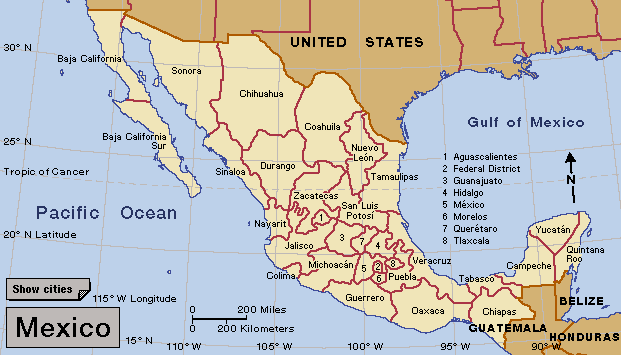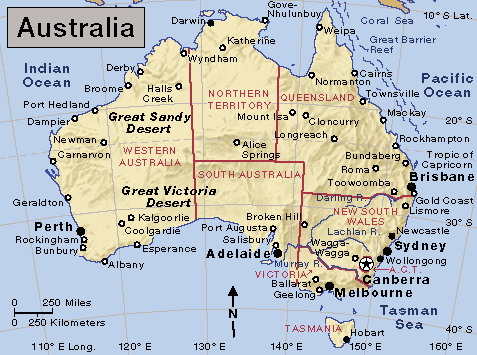Mexico Experiences Worst Drought on Record
Monday, March 19th, 2012March 19, 2012
A drought that began in Mexico in 2010 has turned into the worst that the country has experienced since official weather record keeping began in 1941, according to Mexican officials. At least two-thirds of Mexico’s 31 states are experiencing extremely dry conditions with below-normal rainfall. The north-central states of Coahuila, Durango, San Luis Potosi, and Zacatecas have been hardest hit. However, government officials are also concerned about drought in Guanajuato, one of the top food-producing states in the country. Mexican farmers produce large quantities of beans, corn, onions, and tomatoes, both for export and as food for their own people. Mexico is also the chief supplier of cattle to the United States. According to some estimates, food production across Mexico has fallen by 40 percent, raising food prices.

(World Book map; map data © MapQuest.com, Inc.)
Farmers who rely on rainfall to water their crops and livestock were the first to experience hardship. Rain has fallen in some states at only half the usual levels. As the dry conditions have continued, lakes and reservoirs have fallen to critically low levels. Many farmers are no longer able to irrigate their crops, and ranchers cannot supply their cattle with water. Several towns have run out of drinking water. The government has begun delivering emergency food and water supplies to thousands of people, and about 2 million others lack adequate food.
Some meteorologists expect the drought to continue for at least several more months. They believe the dry spell is the result of a La Nina. A La Nina is a weather phenomenon in which the waters of the eastern Pacific Ocean become colder and the climate becomes drier. A La Nina follows the better-known weather condition known as an El Nino. During an El Nino, waters of the eastern Pacific Ocean become warmer and the climate becomes wetter. One of the strongest La Nina’s in more than 10 years occurred from 2010 to 2011. Texas has also been experiencing a severe drought.
Additional World Book article:




